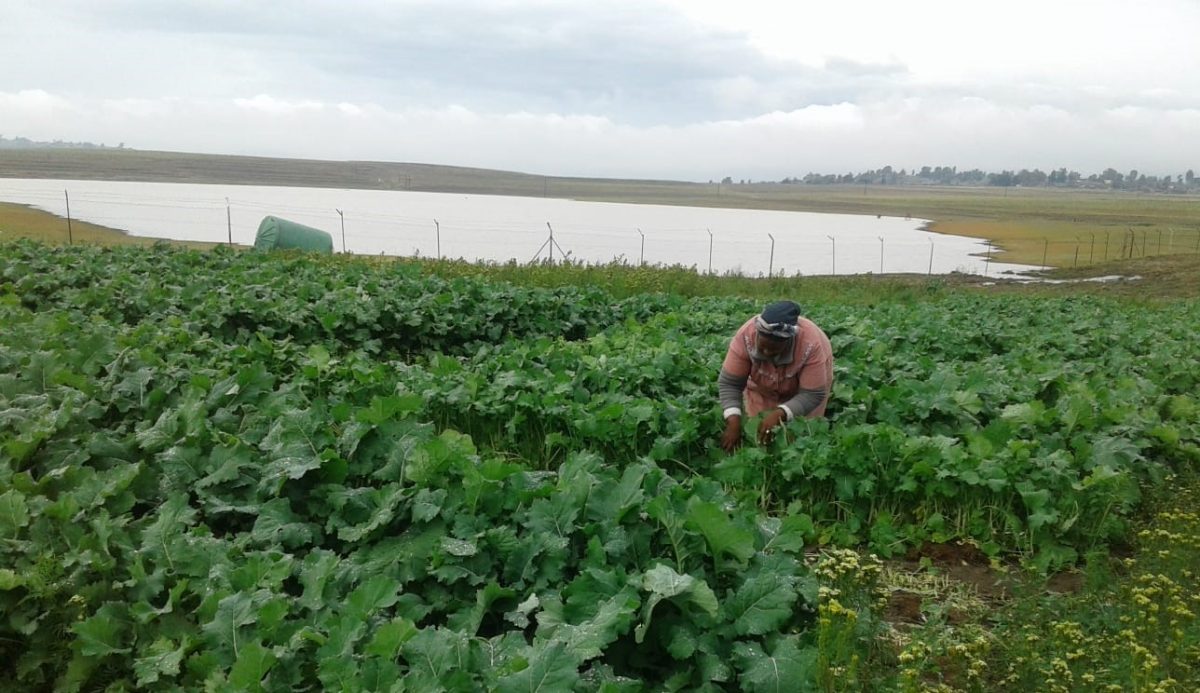Promoting gender and social inclusion is essential to MCC’s mission of achieving poverty reduction through economic growth. While growth is needed for reducing poverty over the long term, producing high levels of aggregate growth does not automatically translate into significant poverty reduction. Research shows that the benefits from economic growth are not shared equally within societies. Growth—even robust growth—can leave some populations and communities behind. Certain disadvantaged groups—often women, the poor, or those from disadvantaged ethnic groups or regions—lack access to the economic opportunities available to others and are prevented from reaching their full productive potential. Poverty is not a purely economic issue. Overlapping systems of disadvantage – in education, physical or financial assets, natural resources, public services, health, social rights, and political voice – can create poverty traps that are difficult to address.
- Women’s economic opportunities are constrained by a potent combination of limited access to labor and credit markets, a disproportionate domestic care burden, fewer opportunities to build relevant skills and restricted economic and social rights.
- Low quality education can hold entire communities back from economic advancement. More unequal societies may have more unequal education systems, effectively excluding the poor—especially women—from getting the skills needed to access more lucrative paying jobs.
- Low status groups face discrimination and social exclusion that can reduce their total pool of human capital and assets, creating chronic, persistent poverty across generations.
MCC’s Commitment to Gender Integration and Social Inclusion
MCC’s Gender Policy, first adopted in 2006, required that gender inequalities are identified and considered throughout the threshold and compact cycle, from the initial country selection and early analysis to the development and design of programs, project implementation, the monitoring of program results, and evaluation of program impacts. Through its Gender and Inclusion Policy, MCC and its partner countries routinely and systematically expand opportunities for women, people living in poverty, and other structurally disadvantaged groups to access, participate in, and benefit from MCC programs. This focus on gender and inclusion is fundamental to MCC’s mission to reduce poverty through economic growth. Economic and social disadvantage is found in all countries, and MCC recognizes that growth alone will not bring about poverty reduction—its programs must also be inclusive and sustainable.Country Selection and Assessment
Three of the 20 indicators on the MCC scorecard used to assess countries’ commitment to just and democratic governance, investment in its people, and economic freedom relate to gender. The Gender in the Economy indicator measures a government’s commitment to promoting gender equality by providing women and men with the same legal ability to participate in the economy, access to capital and markets, and rights to own property. MCC’s scorecard also includes indicators that measure a government’s commitment to girls primary and secondary education. After a country is selected, MCC identifies the key binding constraints to economic growth, which includes an analysis of social and gender inequalities that may characterize the economy or shape policies and institutions and influence how economic growth impacts poverty and different groups within a society. MCC partnered with the Brookings Institution to refine and strengthen the agency’s application of the constraints to growth diagnostic tool to include a deeper and more systematic analysis of gender inequalities.Program Design and Implementation
In designing programs, MCC seeks to fund activities that will generate significant and measurable increases in incomes of large numbers of people in partner countries, including significant gains for the poor. As part of that process, MCC designs investments with an eye to ensuring benefits for women, the poor, and other disadvantaged groups. In addition to requiring that each MCC investment meets the requirements of the Gender and Inclusion Policy, MCC also has an Inclusion and Gender Strategy that aims to significantly deepen its commitment to inclusion and gender equity and equality by routinely and systematically integrating gender and inclusion components into its investments. MCC will ensure that programming targeting women, poor people, and other marginalized groups contributes meaningfully to a project’s theory of change and helps to achieve MCC’s overarching objective of poverty reduction through inclusive and sustainable economic growth. Each MCC investment requires a Social and Gender Integration Plan (SGIP), which provides a comprehensive roadmap for social inclusion and gender integration throughout compact and threshold programs. Payment of the second disbursement of compact funds is contingent on a partner country completing and MCC approving this plan.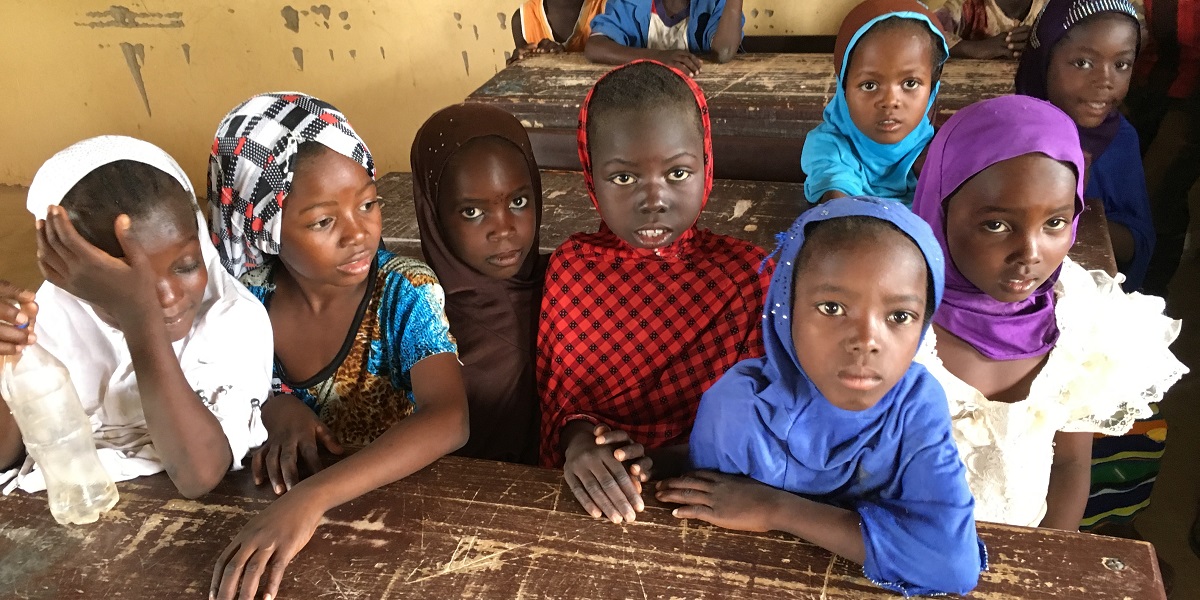
Matt Sloan/Mathematica
According to an impact evaluation by Mathematica Policy Research, girls attending MCC-funded IMAGINE schools in Niger had higher enrollment rates, lower absenteeism rates, and higher math and French test scores than those in schools in comparison villages.
Data Monitoring and Evaluation
Good data yields good policy. Through its monitoring and evaluation efforts, MCC gathers and analyzes data on its beneficiaries, including by gender as well as by key socio-economic traits. MCC is working to understand how our women’s economic empowerment programming can increase income and assets at a household level, and thereby contribute to MCC’s overarching goal of reducing poverty through economic growth.Examples of MCC’s Work in Gender and Social Inclusion
The ability of individuals to be productive members of society starts with the opportunities available to them during childhood and adolescence. Through school construction and rehabilitation targeted to communities that need it most, MCC increases access to schools and supports policy reform and teacher training that creates an effective learning environment. Many of MCC’s education programs include a component to address girl’s educational access because we believe that investing in girls’ education is critical to the ability of women and girls to contribute to the productivity of the economy.
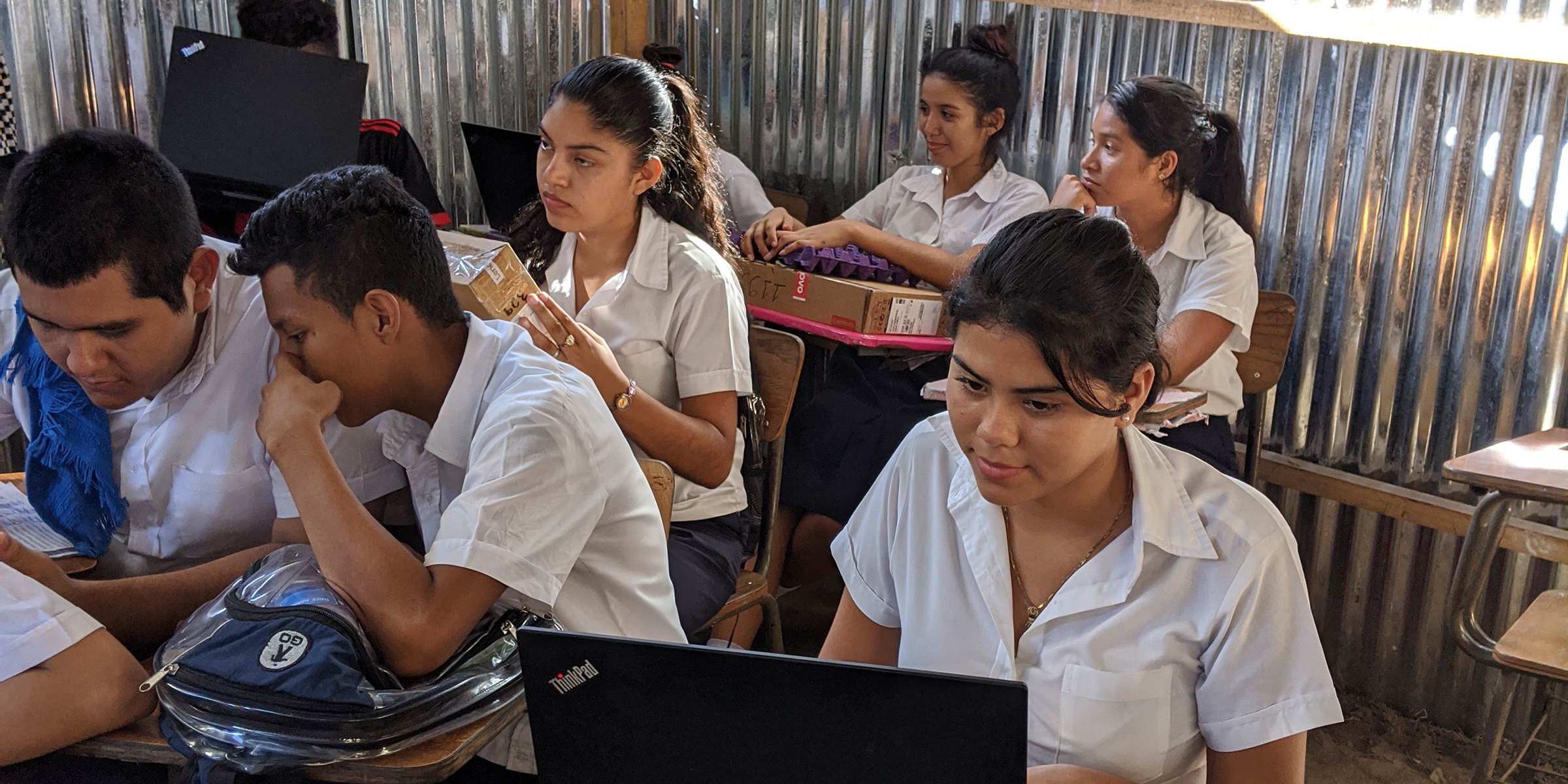
MCC
MCC provided training to over 1,500 teachers and principals, 10,000 students, 5,500 student families, and over 100 staff from the Ministry of Education to improve gender equality within classrooms and schools.
MCC’s compact with El Salvador focuses on the systemic barriers that limit girls’ educational success. MCC is supporting efforts to address gender inequality and bias in the classroom, curriculum reform, and training teachers and students’ families to be aware of how not to perpetuate gender stereotypes. In close partnership with the Government of El Salvador, MCC also focuses on adolescent girls’ empowerment and young men’s redefinition of masculinity to reduce the gender-based violence that is pervasive in the country.
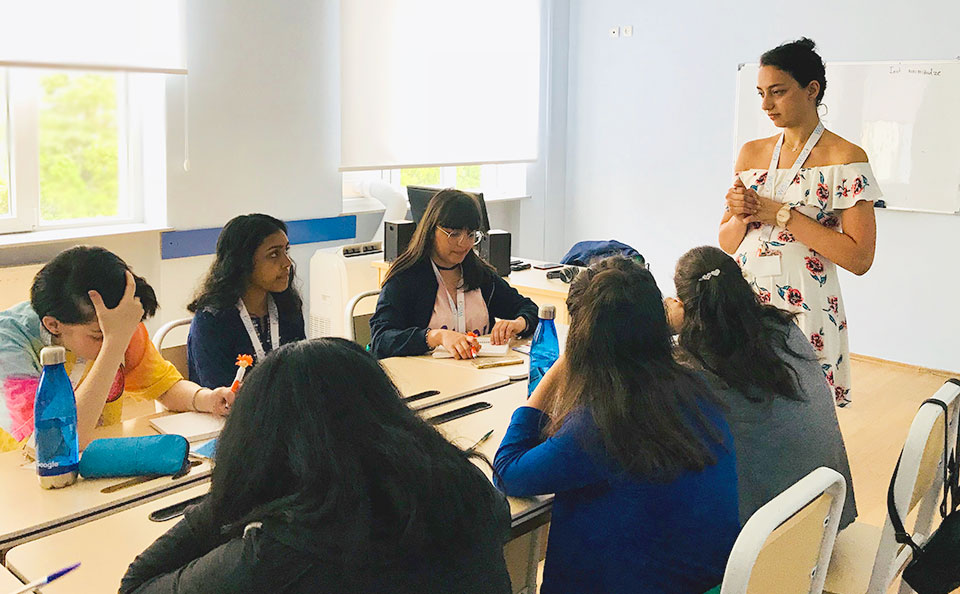
MCC
Nina, a senior at San Diego State University-Georgia studying computer engineering, was also a counselor at the 2018 Women in Science Camp where she helped guide activities and shared her experience in the STEM field with young campers.
In Georgia, MCC focuses on providing women and girls with the skills they need to succeed economically through increasing women’s participation in STEM degree programs. To attract and retain girls and minorities in the new U.S. accredited STEM bachelor’s degree program offered by San Diego State University and three Georgian public partner universities, MCC supports targeted outreach and recruitment efforts as well as scholarships.
According to the International Energy Agency (IEA), approximately 860 million people—70 percent of whom live in Sub-Saharan Africa—still lack access to a reliable and affordable source of electricity. The sustainable provision of electricity—a resource crucial to human development—can promote better health and education within communities and free up large amount of time and labor. There is also a close correlation between income levels and access to modern sources of energy. Women are more likely than men to live in poverty and many of these women live in rural areas without electricity.In Benin, MCC’s compact is focused on increasing electricity supply, including to women and the urban and rural poor within the country. Benin’s utility needs to be financially viable and able to provide accessible and affordable electricity, including to low-income populations. To reach unserved rural and peri-urban communities, MCC is co-financing off-grid, clean energy solutions. A Women’s Energy Entrepreneurship activity will equip women with the skills to leverage electricity and the sale of energy products to increase their incomes.
The Senegal Power Compact Access Project will support the construction of electrical grid infrastructure in southern and central regions of Senegal. The areas of focus include the Casamance, which is one of the country’s poorest regions, and which has experienced in the past separatist conflict. The project will include an education and outreach campaign to reach poorer communities and encourage them to connect to the grid. It will also facilitate women and youth’s access to electric equipment and labor-saving devices.

Rhoda was selected as an intern at the electricity utility through MCC’s program.
In Ghana, MCC encouraged the electricity utility to adopt a new policy on gender, which seeks to strengthen the recruitment, retention and promotion of women within the utility. This is part of a larger effort by MCC, including the establishment of an internship and mentorship program, to encourage more women to go into and succeed in higher paying jobs in the energy sector which is considered a non -traditional occupation for women.
“The engineering industry is dominated by males, [… but] with the new [gender] policy in place, there is a greater chance of me, as a young female engineer, to gain employment in this male dominated field.” said Rhoda Oppong, who majored in electrical engineering, and took part in the internship program.
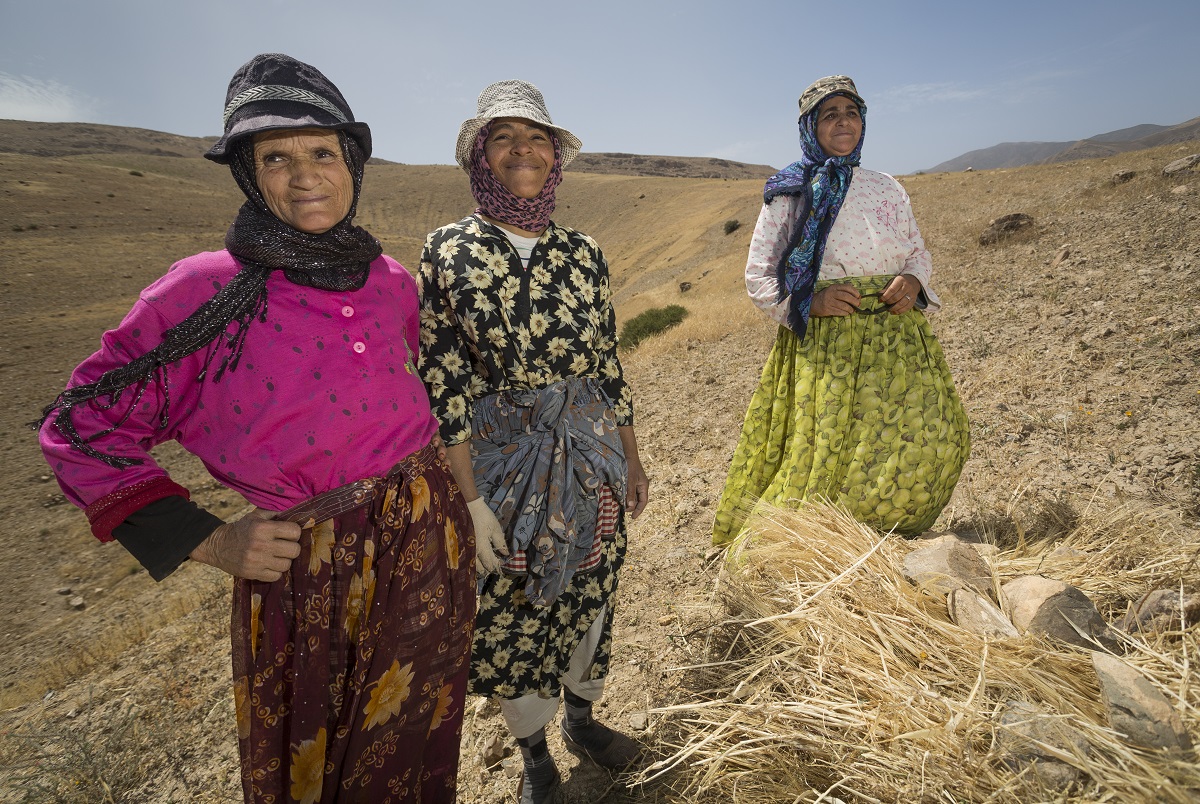
Credit: Jake Lyell for MCC
Strengthening women’s land tenure security improves their access to and control over economic resources which has a positive effect on a poverty reduction and economic growth.
In Morocco, MCC actively encouraged the passage of laws that govern the structure and administration of communal land and strengthen inheritance rights for women. MCC is supporting the individual titling of 67,000 hectares of collective land. With compact support, the Ministries of Interior and Agriculture have adopted a procedure that includes participatory community dialogue and targeted work with women and men to increase women’s participation in decision-making and to create opportunities for more women to be recognized as owners or co-owners of land. The project will also create awareness of women’s legal rights with community leaders. To ensure and amplify the benefits of land titles to the farmers and their families, the program will partner with Moroccan institutions working at the local level to deliver legal and financial literacy training, facilitate access to credit, train farmers on improved agricultural practices and promote economic empowerment opportunities for women and youth.
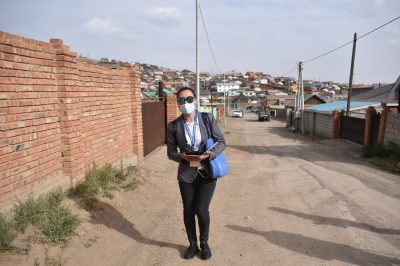
An enumerator collects household information from residents in “ger areas” outside Ulaanbaatar, Mongolia as part of the compact’s social inclusion and affordability activity.
In Mongolia, the primary social inclusion considerations are maintaining the affordability of water and ensuring the water sector’s responsiveness to all types of households and individuals in the capital city of Ulaanbaatar. The Compact is supporting the government to undertake tariff reform that addresses water affordability and the possible need to develop a customer assistance program, while also ensuring the municipal water utility’s financial sustainability.
In Zambia, MCC’s water and sanitation investments included measures to support access and affordability of services for the poor. For example, the utility of Lusaka updated its Gender and Peri-Urban Policies and introduced flexible billing and payment options and affordable connection fees suited to the needs of the poor. These measures, as well as a grants facility that provided grants to community-based organizations, NGOs, and the private sector, stimulated innovations and improvements in pro-poor service delivery during the compact and beyond
Building climate‐resilient economies that promote sustainable and inclusive growth is critical to helping countries confront future crises, adapt to new climate realities, reduce emissions, and stimulate growth. As part of MCC’s climate-smart development strategy, we are committed to expanding our efforts to understand and address the differential impacts of climate change on women, vulnerable, and marginalized populations in our investments. Our commitment not only aims to ensure that MCC mitigation, adaptation, and resilience approaches consider each population’s distinct vulnerabilities, but also to empower them as economic agents and leaders in bringing about climate change solutions. In Niger, systemic gender inequalities in the agriculture sector give rise to challenges for women, such as lack of access to agricultural inputs. MCC’s Climate-Resilient Communities Project in Niger established a grant facility to address finance and credit constraints faced by different groups, including women, youth, and micro-, small-, and medium- enterprises. Other efforts include involving women as key stakeholders to increase their participation in events such as training to support their improved production on land irrigated by the compact. Additionally, a pre-condition to receiving MCC funding, which was successfully met, was the inclusion of women as governing members of water user associations that control this crucial and climate-sensitive agricultural input.
In Tunisia, MCC is supporting a climate-sensitive project to address inadequate and variable water supply in four interior regions. Women in these regions are often excluded from land ownership, and their livelihoods—working mostly in the informal sector—are highly vulnerable. The project will address women’s job insecurity by promoting their participation in water user associations and on agricultural cooperatives, by supporting female employment in irrigation works, and by supporting the expansion of social security coverage for workers in the informal sector, where women predominate.


